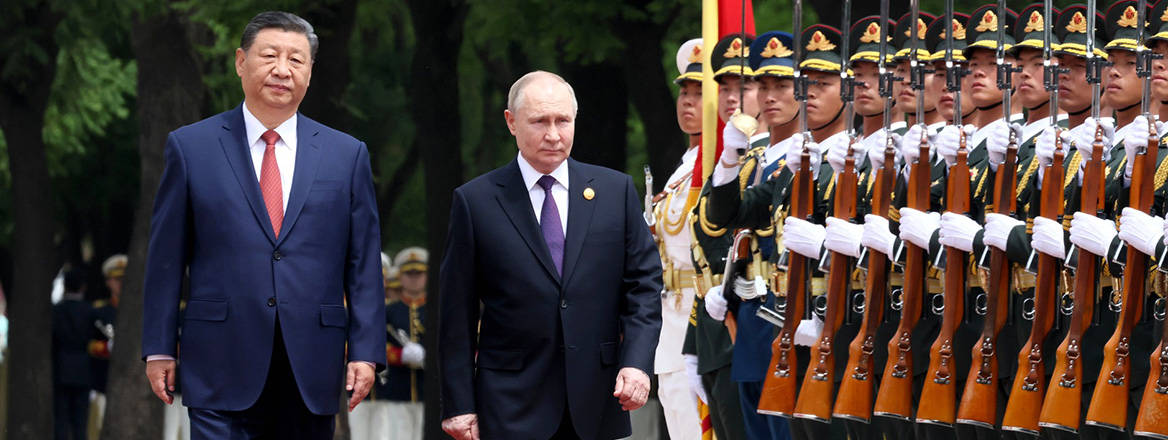RUSI
|
|
Russia and China: The True Nature of their Cooperation
Strategic cooperation between Moscow and Beijing has visibly intensified in the wake of Russia’s invasion of Ukraine. However, Russia is now firmly the weaker partner in the relationship, with China exploiting the Kremlin’s situation for its own ends.

On 29 May, US Deputy Secretary of State Kurt Campbell spoke to NATO representatives in Brussels on the seriousness of Chinese-Russian relations. His words underscore the true nature of the ‘no-limits’ arrangement between Beijing and Moscow. It is not a partnership of convenience, but a concerted effort to shift the geopolitical centre of gravity towards Asia. While the West often talks about ‘bleeding Russia dry’ through the conflict in Ukraine, Campbell warns that it risks suffering a similar drawn-out death. China does not represent a voice of reason in Russia’s ear as has been suggested by some Western leaders, but has a vested interest in destabilising the West and distracting it from Beijing’s own objectives in the Indo-Pacific.
Increasing political, economic, and social burdens stemming from the invasion of Ukraine have kneecapped Russian agency in the international arena. As the divide between Russia and the West grows, the Kremlin is increasingly focusing its attention on China, with ties between the two states growing ever stronger. In defiance of the West, Russia characterises its relationship with China as an alliance between two great civilisations. However, as Russian President Vladimir Putin’s recent visit to China has highlighted, Moscow is increasingly finding itself a pawn of China’s geopolitical aspirations.
Amid increasing geopolitical turbulence, the concept of multipolarity is becoming acknowledged as a global trend. Russia and China have been quick to label themselves as key players in this emerging world order, and have collectively strived towards the formation of a bloc that is set to rival Western hegemony. At a glance, the relationship appears natural: two rising authoritarian powers are joining forces to challenge the prevailing order. Yet upon delving deeper into the relationship’s dynamics, Russia’s commitment to its war on Ukraine, its stagnating economy, and its search for support extraneous to the West have led to its foreign policy objectives becoming slowly subsumed into China’s vision of the future international order.
The New World Order
Geopolitical constraints provide Russia and China with a plethora of reasons to band together. Their distrust of Western hegemony, authoritarian governments, and similar political ambitions have nurtured relations between Moscow and Beijing for the last political generation.
In their recent press conference, both states agreed that civilisational differences shape spheres of influence; that international institutions are polarised against their interests, requiring shifts in structure to accommodate ‘new realities’; and that there is no place for military alliances in the Asia-Pacific region. Noticeably, the conversation focused on the developing trade partnership between the two states, with comments on external affairs remaining limited in detail. In comparison to Putin’s usual damning rhetoric on the collective West, the restraint within this meeting is a sign of the true dynamics of the situation – namely, that they are shaped primarily by Chinese interests.
Click here for the full press release
Original article link: https://rusi.org/explore-our-research/publications/commentary/russia-and-china-true-nature-their-cooperation
.gif)

